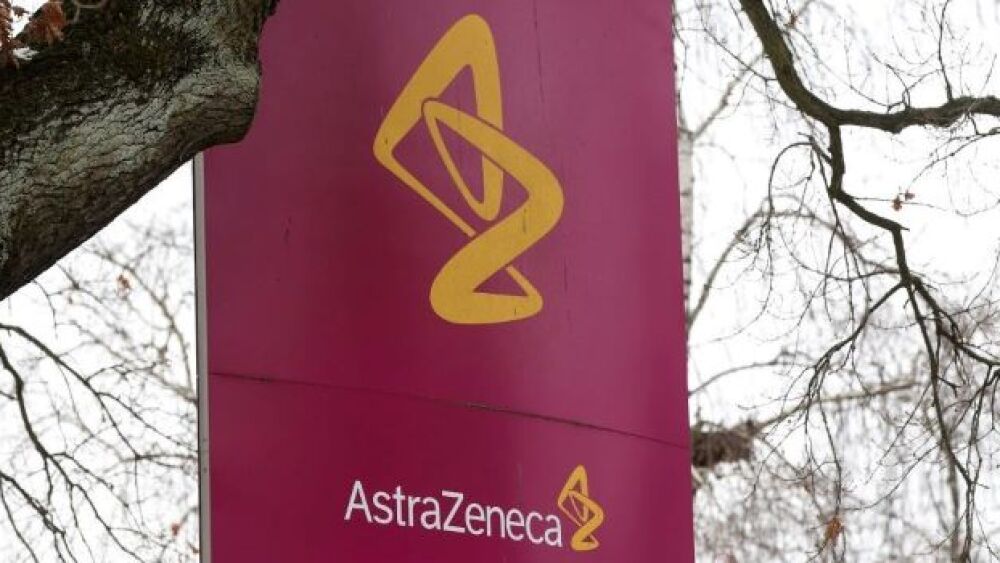AstraZeneca’s Alexion plans to buy all remaining equity in Caelum Biosciences and pick up Caelum’s CAEL-101 in the process.
Bodo Marks/picture alliance via Getty Images
AstraZeneca’s Alexion plans to buy all remaining equity in Caelum Biosciences. In the process, AstraZeneca will pick up Caelum’s CAEL-101, a possible first-in-class fibril-reactive monoclonal antibody to treat light chain (AL) amyloidosis.
AstraZeneca acquired Alexion in December 2020 for about $39 billion. In 2019, Caelum and Alexion inked a collaboration deal. In that process, Alexion picked up a minority equity interest and exclusive option to buy the rest of the company. Alexion currently has a non-controlling interest of $150 million. Upon closing of this deal, which is expected to occur on October 5, Alexion will pay Caelum the option exercise price of about $150 million, with additional payments up to $350 million based on various regulatory and commercial milestones.
AstraZeneca will pick up Caelum’s CAEL-101 for light chain (AL) amyloidosis. Amyloidosis is a rare disease caused by the buildup of misfolded amyloid proteins in various organs, including the heart and kidneys. This results in significant organ damage and failure that can be fatal. It affects about 20,000 people in the U.S., France, Germany, Spain and the U.K.
“With a median survival time of less than 18 months following diagnosis, there is an urgent need for new treatments for this devastating disease,” said Marc Dunoyer, chief executive officer of Alexion. “CAEL-101 has the potential to be the first therapy to target and remove amyloid deposits from organ tissues, improve organ function, and ultimately, lead to longer lives for these patients.”
CAEL-101 is an antibody engineered to bind misfolded light chain proteins and amyloid. In studies, it demonstrates binding to both kappa and lambda subtypes. The U.S. Food and Drug Administration (FDA) and the European Commission have granted it Orphan Drug Designation for AL amyloidosis. The FDA also granted it Fast Track Designation in June 2021.
The compound is currently being studied in the Cardiac Amyloid Reaching for Extended Survival (CARES) Phase III program in combination with standard-of-care in AL amyloidosis. AL amyloidosis has been classified as Mayo stage IIIa or IIIb disease. The CARES program consists of two Phase III trials that are ongoing for the drug in Mayo stage IIIa disease and IIIb disease. The IIIa disease study is enrolling about 270 patients, while the other is enrolling about 110 with IIIb disease. The primary endpoint for both is overall survival.
As part of this deal, Fortress Biotech will receive about 43% of the proceeds from the transaction. Fortress founded Caelum Biosciences. Under the terms of the Development, Option and Stock Purchase Agreement (DOSPA) between Fortress, Caelum, Alexion and AstraZeneca, Alexion will buy all outstanding shares of Caelum and pay $150 million. Funds will be distributed to all existing Caelum stockholders, including Fortress.
“The acquisition of Caelum is a positive development and monetization opportunity for our shareholders while validating the Fortress business model,” said Lindsay A. Rosenwald, M.D., chairman, president and chief executive officer of Fortress. “We believe in CAEL-101’s potential to be a best-in-class treatment for AL amyloidosis and look forward to the continued progression of CAEL-101 in the CARES Phase III clinical program under the leadership of the renowned team at Alexion.”
Michael Spector, co-founder, president and chief executive officer of Caelum, said, “I am proud to have been a co-founder of Caelum in 2017 with Fortress Biotech. Caelum formed a collaboration with Alexion Pharmaceuticals in 2019 to develop CAEL-101 for patients with AL amyloidosis, and we achieved significant milestones together through the ongoing Phase III program. The acquisition of Caelum is an important step for patients with AL amyloidosis, as our partners at Alexion have the resources required to expedite the development of CAEL-101. Treatments that target amyloid deposits remain an important unmet medical need.”





